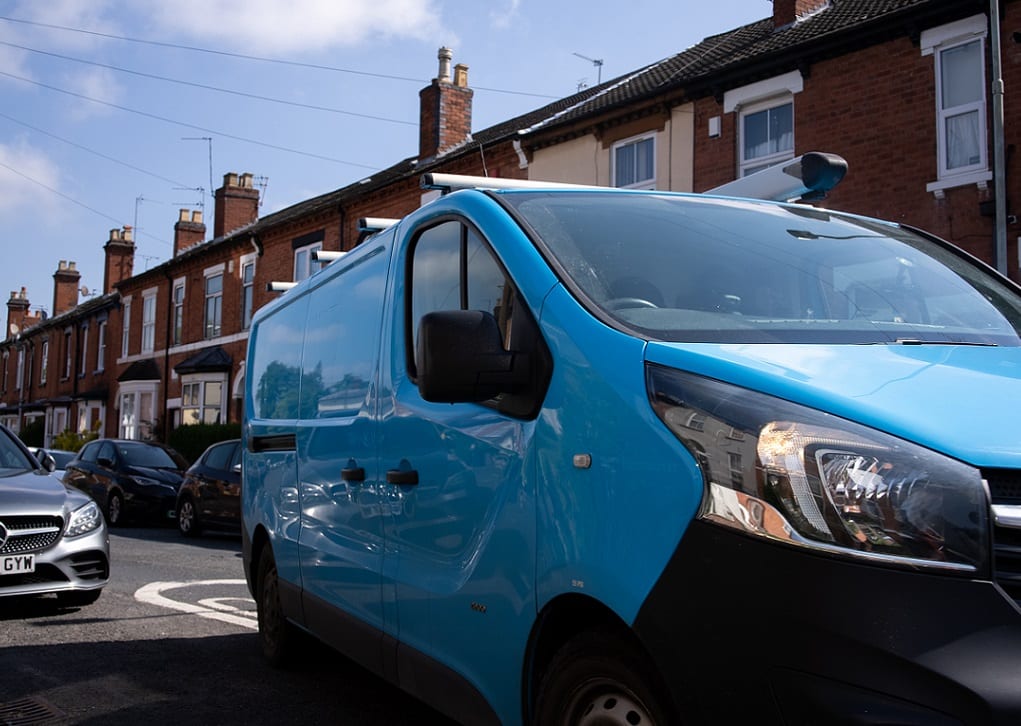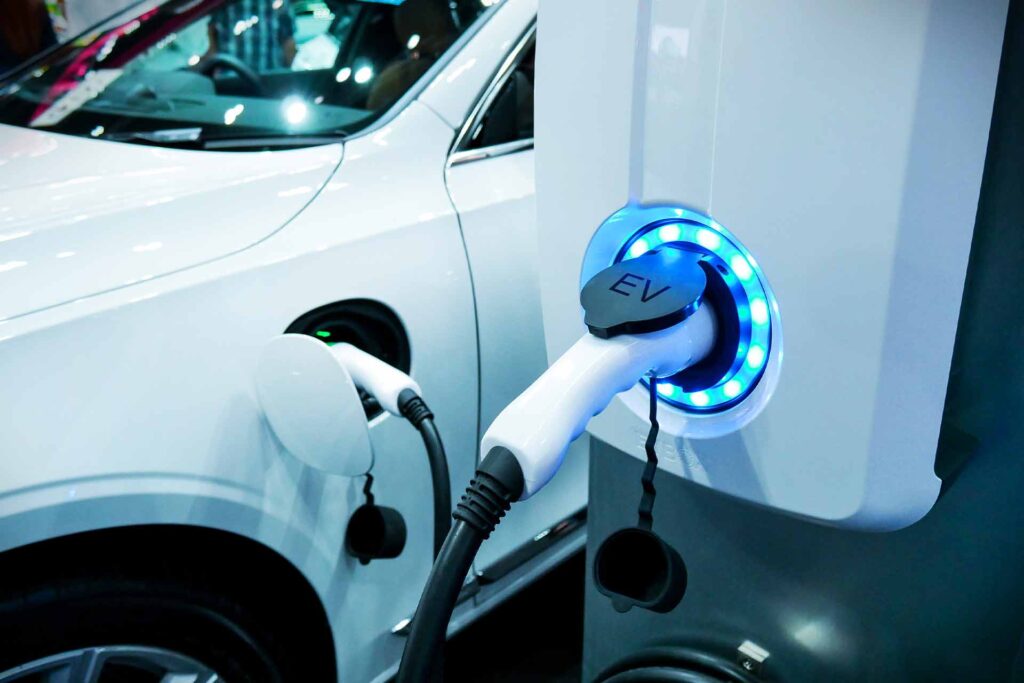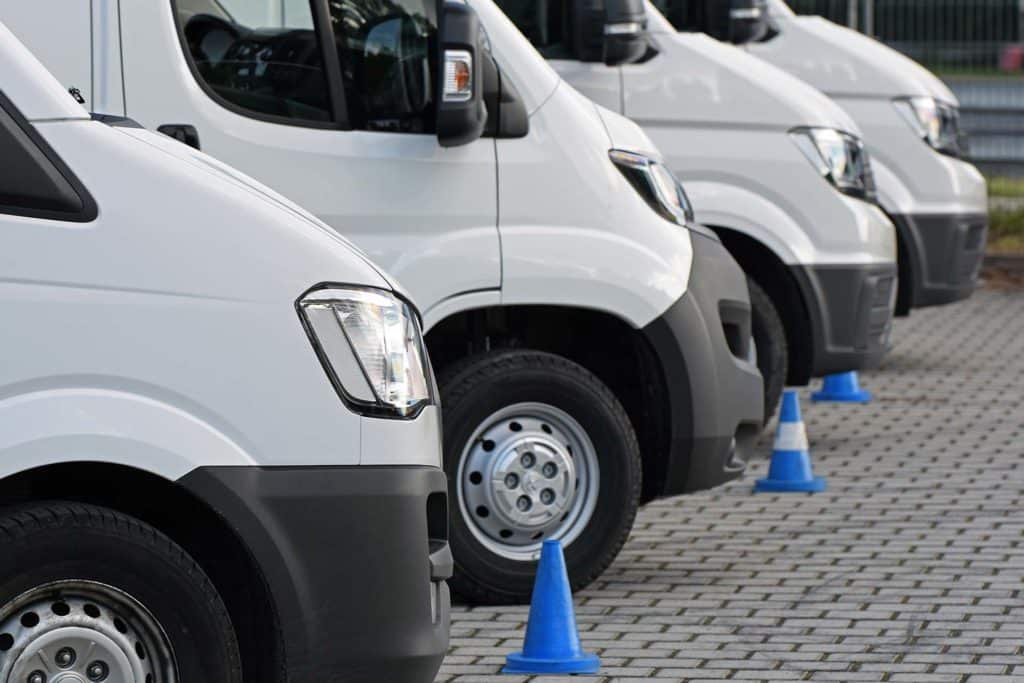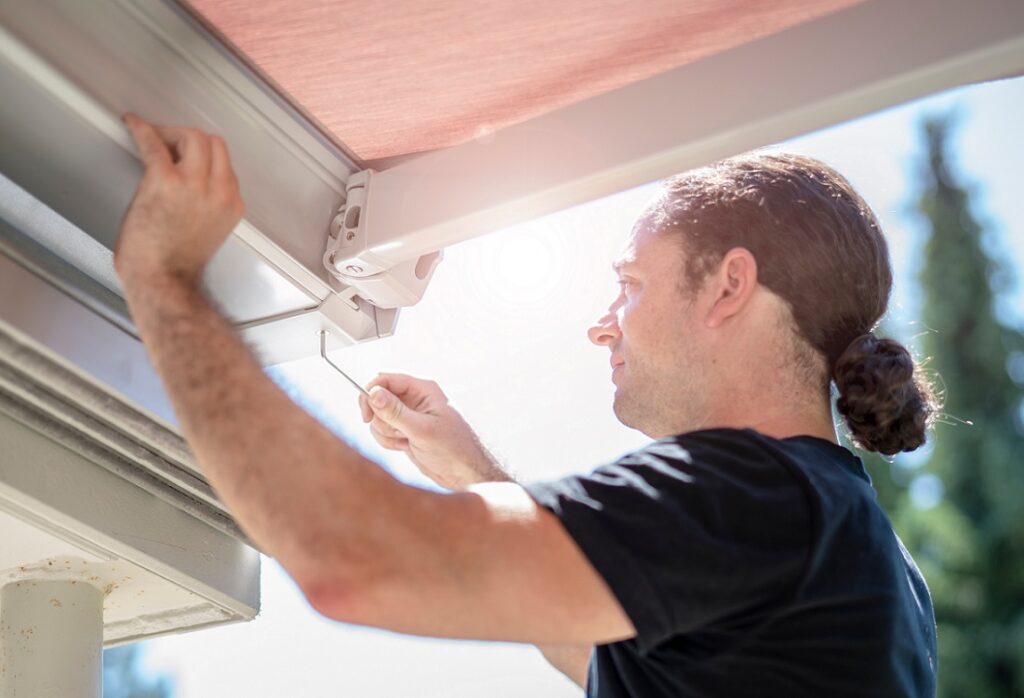Which is the best fuel type for your next van – petrol, diesel or electric?

In this article, we'll cover:
When you’re looking to replace an old vehicle, there are a load of things to consider. Whether it’s your car or work van, there are many options to navigate.
Naturally, the cost is a big factor, as a vehicle is a significant investment. That goes for your work van too. For small businesses particularly, it is one of the biggest expenses you can face.
As well as its price tag, these days, you also need to consider running costs too. What’s the insurance? And importantly, which is the best fuel?
Petrol, Diesel or Electric?
Despite growing in popularity, the number of electric vehicles (EVs) still makes up a fraction of vehicle ownership in the UK.
The UK government is looking to phase out the sale of new petrol and diesel vehicles by 2035. So, there has never been a better time to compare diesel vs petrol vs electric vehicles. .
If you’re thinking about a new work vehicle and have the option of different van fuels, you may also want to think about:
- Running costs – Apart from fuel, what other expenditures are needed?
- Location – If you’re based in a city area do you have low emission zone rules?
- Ease of refuelling – How easy is it to get petrol, diesel or recharge an EV?
- Environmental impact – How can you help minimise your impact?
- The best van for fuel economy – What gives you the best mileage per unit?
- Long term implications – Will diesel and petrol vans become obsolete?
- Safety/security – Will it be easy to keep your tools/van safe?
In this article, we’ll look at the pros and cons of each. This guide is designed to help you make the right decision when you buy your next work van.
Checkatrade members get more for their money
Enjoy 10% off the new Electric Mercedes eVito Panel Van
What is the most fuel-efficient van?
You need to work out the cost per mile. Electric vs Petrol. Diesel vs Electric.
Costs of fuel are one of the biggest factors that tradespeople need to consider. Especially if you rack up the miles with your job!
There are already countless articles online comparing diesel vs petrol vs electric vans to see which is the most economical.
Simply put, working out the most fuel-efficient van used to be a simple comparison of Miles Per Gallon (MPG). However, with electric and hybrid vehicles, that formula is not so simple!

Roughly speaking, how much does it cost per mile to keep you on the road?
When comparing the efficiency of diesel vs petrol, it has long been thought that diesel vans were superior. But with higher prices at the pump, that is no longer the case.
As a Checkatrade member, you could choose a FREE fuel card to use at participating garages and service stations.
Although the initial outlay might be more, electric vehicles are actually cheaper to run on a mile-by-mile basis.
Electric vans
First off, let’s just put this out there. Checkatrade Members can save 10% off the new eVito panel van.
If you have easy access to charging points where you live, then an electric van could be ideal for your trade business.
While their range has still yet to match their diesel or petrol counterparts, electric vans are great for shorter journeys. If you drive less than 200 miles per day, then electric vans are a no-brainer.
Choosing an electric vehicle also makes a clear statement that your business cares about the planet. That’s important for your customers and potential customers. You’ll be seen as an environmentally friendly business, and it may give you a competitive advantage.
The free-to-use Zap Map website and app provide the most up to date way of finding a charging point.
What about the cost?
In addition, there are various government grants that could benefit your business when it comes to buying your next van. The grant will pay for 35% of the purchase price for small and large vans. This is capped at £2,500 and £5,000 respectively.
EVs will also save you money, with running costs in the range of 5 and 10 pence per mile. Annual servicing is also cheaper due to the fact the van doesn’t use a clutch, gearbox or combustion engine.
Petrol, diesel or electric?
Whatever you pick, you will save money by becoming a Checkatrade member
Save me moneyElectric Pros
There are many benefits of electric when comparing diesel vs petrol vs electric vehicles
- Avoiding the high cost of fuel at the pump
- Enjoying cheaper servicing costs
- Paying less tax
- Reducing road tariffs, such as congestion and Ultra Low Emission Zone (ULEZ) charges
- Government grants
- Discount at Mercedes for Checkatrade members
- Slower rate of depreciation
The overarching benefit of choosing an electric commercial van is its low environmental impact, compared with petrol or diesel.
Electric Cons
However, electric vehicles aren’t without their downsides:
- Not everywhere has access to electric vehicle charging points
- Less range than petrol or diesel vehicles
- Bigger initial cost
- Mechanics may be less familiar with their engines

Petrol Vans
There was a time when a diesel van was the automatic choice for a tradesperson. However, given the current fluctuations of fuel costs, many choose a petrol van to help with affordability.
For the wider UK public, the Ford Transit has almost become synonymous with tradespeople. So widespread are they among roofers, builders, electricians, carpenters, plumbers, and other trades.
Also worth considering is that Checkatrade members can enjoy exclusive discounts on the Fiat Professional range.
Checkatrade members get more for their money
Enjoy 10% off the new Electric Mercedes eVito Panel Van
Petrol Pros
There are several reasons why petrol is still the premier choice for trades.
- Better MPG rating
- Wide availability of unleaded petrol at garages/service stations
- Familiarity for mechanics
- Some makes do not incur ULEZ charges
- Discount at Fiat for Checkatrade members
- Petrol Cons
- Sale of new diesel and petrol vehicles will be banned from 2030
- Rising fuel costs
- Environmental impact
Become a Checkatrade member today, and you could make fantastic savings on your next petrol van from the Fiat Professional range.
Petrol, diesel or electric?
Whatever you pick, you will save money by becoming a Checkatrade member
Save me moneyDiesel vans
When thinking about your next van, you need to think about the rumour that diesel vans will be banned.
While they’re not being banned immediately, you do need to consider that new diesel vans are set to be banned from sale in 2030.
Diesel fuel has environmental impact, and natural supplies are dwindling. It has experienced a wave of negative publicity due to harmful exhaust emissions. These have been linked to a wide range of health problems, including heart disease and cancer.
However, pre-existing and second-hand diesel vehicles can still be used and bought for the time being
Diesel Pros
There are a number of pros to consider when comparing diesel vs petrol vs electric:
- Possibly cheaper to get one second hand
- Diesel fuel just as easy to source as unleaded
- Reliability and familiarity
- Diesel Cons
- Being phased out (new sales to stop by 2030)
- Rising fuel costs
- Higher environmental impact
- Higher noise levels than petrol or electric
- DPF – Diesel Particulate filters – these destroy harmful particles in the exhaust, but easily get clogged in vans used for lots of short runs

Not sure where to start?
If you’re intrigued by electric but don’t want to commit to buying a brand-new electric van just yet, have you thought about leasing an electric van?
If you want to find the best van for fuel economy, but don’t want to commit, then leasing might be a good way to go. Whatever van fuel type you choose, you need to make sure its sustainable for the long term.
Make sure to do your research and get the right van to suit your business. It’s one of the most important decisions you could make!
Checkatrade members get more for their money
Enjoy 10% off the new Electric Mercedes eVito Panel Van
How to choose the right van type for you and your business
When deciding between diesel vs petrol vs electric vans, you’ll need to factor in the initial upfront cost. But you should also consider the different depreciation rates of each vehicle.
When electric and hybrid vehicles are added to the mix, other factors come into play. Yes, there may be higher business expense initially, but also think about what will affect the ‘lifetime’ cost of your vehicle. Our guide on company van tax might come in helpful here.
Consider your monthly mileage, whether you carry heavy loads, or if your job requires travel to jobs in a city. Are you regularly travelling up and down the motorway or navigating B roads?
Only you know the circumstance and requirements for your work van, so make sure to factor in everything. You’ll make the best choice, and a shiny new van will really make your trade business stand out locally.
Be sure to read our guide on buying a van for more tips on making the right decision.
Petrol, diesel or electric?
Whatever you pick, you will save money by becoming a Checkatrade member
Save me moneyDiesel vs petrol vs electric FAQs
What is the best van for fuel economy?
This can no longer be calculated on a miles per gallon (mpg) basis. The arrival of electric and hybrid vehicles means you should be thinking about all general running costs.
By and large, electric vehicles are cheaper to run, but often cost more up front.
What is the difference between diesel vs electric running costs?
While diesel vans might be cheaper to buy or lease, EV’s are more affordable in the long term.
Lower running and maintenance costs mean that electric is likely a more cost-effective options in the long run. Add the new government legislation around clear air zones on top, there’s no doubt that EVs are cheaper to run than diesel.



No comments yet!